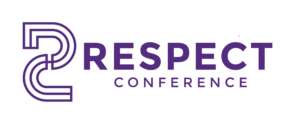The annual Conference on Research in Equity and Sustained Participation in Engineering, Computing, and Technology (RESPECT) is the premier venue for research on equity, inclusion and justice in computing and computing education. Since research in this area is inherently interdisciplinary, we invite contributions from computer science education, educational leadership and policy, learning sciences, cognitive and/or social psychology, social sciences, human computer interaction, and related disciplines. Additionally, recognizing the important role that educators, students, and other community members play as partners in equity-focused efforts, RESPECT welcomes the participation of those who have not traditionally identified as “researchers” to present this year, including teachers, students, advocates and policy-makers.
We invite papers in the following areas:
- Novel approaches to equity, diversity and inclusion
- Inclusive computing curricula and pedagogy
- Equitable and inclusive recruiting and retention strategies
- Accessibility considerations for those with disabilities or special needs
- Teaching social impacts of computing
- Teaching about issues of computational justice within CS education (privacy and surveillance, algorithmic bias, disinformation, ethics, accountability, etc.)
- Teaching for anti-racist technology design
- Indigenous epistemologies in computing education
- Differential impacts of gender, race, ethnicity, intersectionality, socio-economic status, and LGBTQ+ status on computing education
- Teacher efficacy, attitudes, access to support, and teacher training that support diverse groups of teachers and learners
- Critical and liberatory CS pedagogies
- Organizational and cultural factors that impact equity and inclusion in CS
- Sociological factors impacting the pursuit of and persistence in CS education (e.g. contemporary racial attitudes, culture, or family life)
- Systemic approaches to addressing equity and inclusion in CS education at different levels of analysis, (e.g. institution, divisions/schools/units, and institutional networks)
- Successful computing education and research approaches designed for and embodied at HBCUs, HSIs, and TCUs
- Developing, sustaining, improving, and assessing the impact of Researcher-Practitioner Partnerships (RPPs) for CS education
- Generative, bottom-up and community-based approaches to CS education
- Metrics and evaluation approaches for equity and justice-focused efforts
- Issues faced by non-native speakers and CS for All in non-English speaking countries
RESPECT welcomes submissions of research papers, experience reports, position papers, panels, posters, and lightning talks. All papers should explicitly state their motivation, relate to relevant literature, and outline implications. Research papers (8 pages full/4 pages short) should adhere to rigorous standards, situating contributions as they relate to prior work, detailing methods and research questions, and presenting findings and conclusions. Experience reports (4 pages) should carefully describe the context and provide a rich reflection on what worked, what didn’t, and why. Position papers (4 pages) should present a well-articulated opinion concerning equity, inclusion, and justice as it relates to CS education that is backed by evidence. Calls for additional opportunities (e.g., panels, posters, and lightning talks) are forthcoming, and will provide opportunities to share about various implementation and/or research efforts, as well as feature the work of teachers and students.
Submission Deadlines
Research Papers, Experience Reports, Position Papers, and Panel Proposals
February 18, 2022 Paper & Panel Proposal ABSTRACTS due @ EasyChair
March 1, 2022 PAPERS & PANEL PROPOSALS due @ EasyChair
April 1, 2022 Paper & Panel Notifications
April 28, 2022 Camera Ready Papers & Copyright Forms due @ EasyChair
May 2, 2022 Video Presentations due
Posters & Lightning Talks
April 6, 2022 Poster & Lightning Talk ABSTRACTS due @ EasyChair
April 22, 2022 Poster & Lightning Talk Notification
